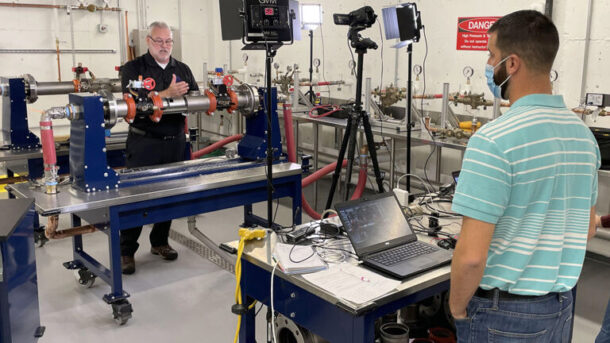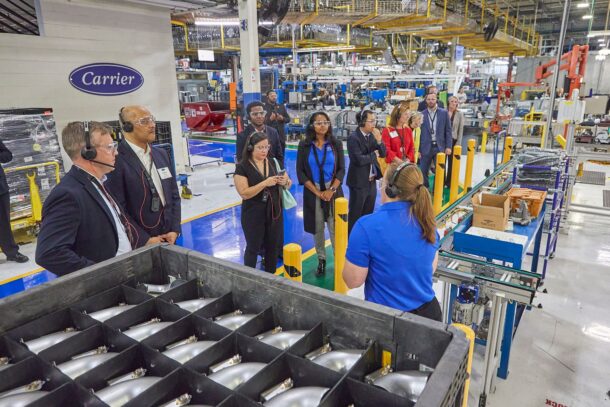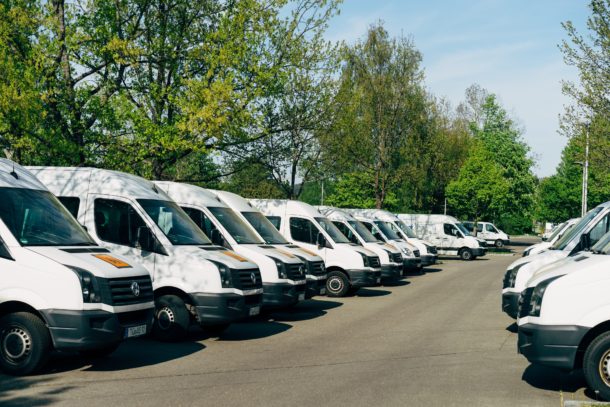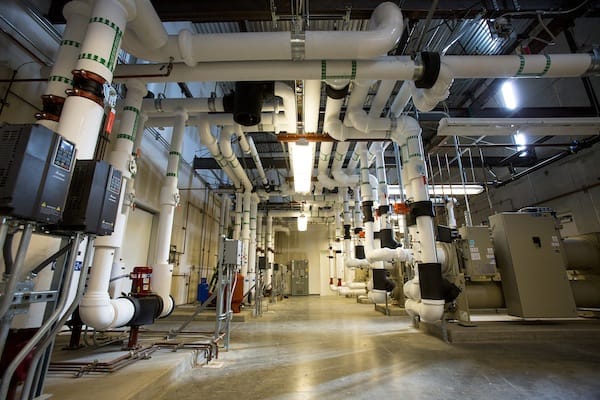Building might be your bread and butter, but in the course of your construction work, there are ample opportunities for you to make extra money on the side to pad out those profits, as you will see below… Recycle Like a Rockstar Let’s start by talking trash—specifically, metal trash. Those scraps from your job sites Read more
Whats New

Building might be your bread and butter, but in the course of your construction work, there are ample opportunities for you to make extra money on the side to pad out those profits, as you will see below…
- Recycle Like a Rockstar
Let’s start by talking trash—specifically, metal trash. Those scraps from your job sites? They’re not just annoying debris; they’re potential gold mines. Metal recycling isn’t just good for the Earth—it can be great for your wallet too. Copper, aluminum, and steel can all fetch a pretty penny. Think of it as getting paid to clean up after yourself. It’s like your mom handing you a twenty every time you tidy your room—only better.
- Rent Out the Big Toys
If you’ve got tons of industrial equipment, and as a construction company you probably will, then there will be tons of people, whether they are smaller companies, or individuals renovating their homes, who would love to get their hands on them. So, why not rent out your tools and equipment on weekends or between jobs to make a little extra?
- Offer Mini-Courses
You and your crew have skills. Serious skills. Why not share the wealth (literally and figuratively)? Offering workshops or courses on basic building skills, like laying tile or basic carpentry, can not only bring in extra cash but also help you scout potential new hires in the process. It’s community building and profit making at the same time!

- Maintenance Contracts
You’ve built it, but who’s going to maintain it? Offer maintenance packages for projects you’ve completed. Many building owners would love to have the peace of mind that comes with knowing the original builders are keeping an eye on things. It’s like a warranty service but more hands-on and with a personal touch.
- Get Into the Flip Game
If you’re already building from scratch, why not try your hand at flipping? Buy some underloved properties, work your magic, and sell them at a profit. It combines your expertise with a bit of market savvy. Plus, it’s pretty satisfying to see a before and after that you made happen (and that pads your account).
- Specialize and Certify
Specialization can be key to higher profit margins. Whether it’s eco-friendly construction, historical restorations, or smart homes, being known for a niche can allow you to charge premium prices. And don’t just be good at it—get certified. Certifications can justify higher fees and build trust with your clients.
- Expand Your Horizons
Literally. Consider taking on projects in nearby towns or cities if your local market is saturated. Expanding your geographic reach can tap into new markets and client bases. Just be sure to do your homework on local regulations and building codes.
- Upcycle and Upsell
Finally, take a cue from the recycling tip but apply it to leftover materials. Create unique, upcycled products like furniture or decorative pieces from leftover materials. It’s sustainable and chic. Sell these pieces directly to consumers or at local markets.
Your building company doesn’t just have to stick to the blueprint. With a little creativity and business savvy, there are plenty of opportunities to build extra revenue streams to be explored.

Custom LED signs are becoming an increasingly popular choice for businesses looking to attract attention and convey messages in an eye-catching and efficient manner. As technology advances and consumer preferences evolve, LED signage is gaining traction due to its versatility, energy efficiency, and aesthetic appeal. In this article, we will explore how custom LED signs Read more
Custom LED signs are becoming an increasingly popular choice for businesses looking to attract attention and convey messages in an eye-catching and efficient manner. As technology advances and consumer preferences evolve, LED signage is gaining traction due to its versatility, energy efficiency, and aesthetic appeal. In this article, we will explore how custom LED signs are manufactured and why they are becoming a popular item for manufacturers. We will also examine the growing demand for lit signage and its impact on various industries.

The Popularity of Custom LED Signs
Custom LED signs are revolutionizing the way businesses communicate with their audiences. These signs are used in a variety of settings, from storefronts and restaurants to events and trade shows, due to their ability to grab attention and deliver messages effectively.
Benefits of Custom LED Signs
- Energy Efficiency: LED lights consume significantly less energy compared to traditional lighting options, resulting in lower energy costs and a reduced carbon footprint.
- Versatility: LED signs can be customized to fit any design, size, or shape, making them suitable for a wide range of applications. Businesses can tailor their signs to match their branding and messaging needs.
- Durability: LED lights have a long lifespan, often lasting up to 50,000 hours or more. This durability reduces the need for frequent replacements and maintenance, providing long-term value.
- Brightness and Visibility: LED signs offer superior brightness and visibility, making them ideal for attracting attention both day and night. This is especially beneficial for businesses that rely on foot traffic and visual appeal.
- Eco-Friendly: LED lights are free from hazardous materials such as mercury, making them an environmentally friendly choice for businesses committed to sustainability.
Increasing Demand for Lit Signage
The demand for lit signage is on the rise as businesses recognize the value of impactful visual communication. According to a report by Grand View Research, the global digital signage market is expected to reach $31.71 billion by 2025, driven by the growing adoption of LED technology and digital displays across various sectors.
Industries such as retail, hospitality, and entertainment are particularly keen on leveraging LED signs to enhance customer engagement and create memorable brand experiences. As a result, manufacturers are increasingly focusing on producing high-quality, custom LED signs to meet this growing demand.
How Custom LED Signs Are Manufactured
The manufacturing process for custom LED signs involves several stages, each critical to producing high-quality signage that meets customer specifications. Let’s explore the steps involved in creating these dynamic and visually appealing signs.
1. Design and Planning
The first step in manufacturing custom LED signs is the design and planning phase. This involves working closely with the client to understand their branding, messaging, and design preferences. During this stage, manufacturers create detailed blueprints and mock-ups that outline the sign’s dimensions, colors, and layout.
- Client Consultation: Discuss the client’s requirements, including desired sign size, colors, and specific messaging or graphics.
- Design Software: Utilize advanced design software to create digital renderings and mock-ups of the sign. This allows clients to visualize the final product and make any necessary adjustments before production begins.
- Material Selection: Choose the appropriate materials for the sign, such as acrylic, metal, or polycarbonate, based on the client’s preferences and intended use.
2. Fabrication and Assembly
Once the design is finalized, the fabrication and assembly process begins. This stage involves cutting, shaping, and assembling the sign components to create the final product.
- Cutting and Shaping: Use precision cutting tools, such as CNC machines or laser cutters, to shape the sign’s components according to the design specifications.
- LED Module Installation: Install LED modules onto the sign’s backing material. The placement of LEDs is crucial for achieving uniform brightness and illumination.
- Wiring and Electrical Components: Integrate wiring and electrical components to ensure the sign functions properly. This includes connecting LEDs to power sources and incorporating control systems for programmable features.
- Quality Control: Conduct thorough quality control checks to ensure that all components are assembled correctly and meet industry standards. This includes testing the sign’s illumination and functionality.
3. Finishing and Customization
After assembly, the sign undergoes finishing and customization processes to achieve the desired aesthetic and functionality.
- Surface Treatment: Apply surface treatments, such as painting or coating, to enhance the sign’s appearance and protect it from environmental elements.
- Graphics and Branding: Add graphics, logos, and branding elements to the sign using techniques like screen printing or digital printing.
- Additional Features: Incorporate any additional features, such as dimming controls, motion sensors, or remote control capabilities, to enhance the sign’s versatility.
Table: Comparison of LED and Traditional Signage
| Feature | LED Signage | Traditional Signage |
| Energy Efficiency | High efficiency, low energy consumption | Lower efficiency, higher energy costs |
| Lifespan | Up to 50,000 hours | Shorter lifespan, frequent replacements |
| Brightness | Superior brightness and visibility | Limited brightness and visibility |
| Customization | Highly customizable | Limited customization options |
| Environmental Impact | Eco-friendly, no hazardous materials | May contain hazardous materials |
According to Statista, the global LED lighting market is projected to reach $100 billion by 2025, highlighting the widespread adoption of LED technology and its impact on various industries.
Marketing and Support for Custom LED Signage
As the demand for custom LED signage continues to grow, manufacturers must focus on effective marketing strategies and customer support to stand out in a competitive market. By leveraging innovative marketing techniques and providing exceptional service, manufacturers can attract new clients and build lasting relationships.
Effective Marketing Strategies
- Online Presence: Establish a strong online presence through a well-designed website and active social media channels. Showcase your portfolio of custom LED signs and highlight their unique features and benefits.
- Content Marketing: Create valuable content that educates potential clients about the advantages of LED signage. Blog posts, videos, and case studies can demonstrate your expertise and showcase successful projects.
- Trade Shows and Exhibitions: Participate in industry trade shows and exhibitions to showcase your products and connect with potential clients. These events offer opportunities for networking and generating leads.
- Client Testimonials: Leverage client testimonials and reviews to build trust and credibility. Positive feedback from satisfied customers can enhance your reputation and attract new business.
- Partnerships and Collaborations: Form partnerships with complementary businesses, such as interior designers or architects, to expand your reach and offer comprehensive solutions to clients.
Customer Support and Service
Providing exceptional customer support is crucial for building long-term relationships and ensuring client satisfaction.
- Consultation and Design Assistance: Offer consultation services to help clients design and conceptualize their custom LED signs. Provide expert guidance on materials, colors, and design elements.
- Installation and Maintenance: Provide installation services to ensure that the signs are set up correctly and safely. Offer maintenance packages to keep the signs in optimal condition and extend their lifespan.
- Technical Support: Offer technical support to address any issues or questions clients may have about their LED signs. Ensure that support is readily available through various channels, such as phone, email, or live chat.
Forbes states that businesses focusing on customer experience can achieve revenue increases of 4% to 8% above their market, emphasizing the importance of exceptional service in driving growth.
The Future of Custom LED Signage
As technology continues to evolve, the future of custom LED signage looks promising. Advancements in LED technology, such as increased energy efficiency and enhanced programmability, will further solidify the position of LED signs as a preferred choice for businesses worldwide.
Emerging Trends in LED Signage
- Smart Signage: Integration of smart technology, such as IoT connectivity and AI, will enable LED signs to offer interactive and personalized experiences for customers.
- Sustainable Solutions: Continued emphasis on sustainability will drive the development of eco-friendly LED signage solutions that minimize environmental impact.
- Enhanced Customization: Advancements in manufacturing techniques will allow for even greater customization, enabling businesses to create truly unique and personalized signs.
- Augmented Reality (AR): The incorporation of AR technology into LED signage will create immersive experiences that captivate audiences and enhance brand engagement.
- Increased Adoption in New Industries: As awareness of LED signage benefits grows, new industries such as healthcare, education, and transportation will increasingly adopt LED signs for various applications.
According to MarketWatch, the global digital signage market is expected to grow at a CAGR of 7.9% from 2021 to 2026, driven by the increasing demand for innovative and engaging visual communication solutions.
Conclusion
Custom LED signs are transforming the way businesses communicate with their audiences, offering a dynamic and effective solution for visual communication. The manufacturing process of LED signs involves meticulous planning, precise fabrication, and creative customization, resulting in high-quality signage that meets the unique needs of each client. As the popularity of LED signage continues to rise, manufacturers have an opportunity to capitalize on this trend by delivering exceptional products and services. By embracing innovation and focusing on customer satisfaction, manufacturers can drive growth and solidify their position in the thriving LED signage market. With the right strategies and dedication to excellence, the future of custom LED signage is bright and full of potential.

Expanding your manufacturing business and increasing lead generation is crucial for long-term success and profitability. In a competitive market, manufacturers must continually evolve their products and marketing strategies to meet changing customer demands and industry trends. By adapting your offerings and leveraging effective marketing techniques, you can enhance your business’s visibility, attract new clients, and Read more
Expanding your manufacturing business and increasing lead generation is crucial for long-term success and profitability. In a competitive market, manufacturers must continually evolve their products and marketing strategies to meet changing customer demands and industry trends. By adapting your offerings and leveraging effective marketing techniques, you can enhance your business’s visibility, attract new clients, and drive sustainable growth. This article explores actionable strategies to grow your manufacturing business and optimize lead generation through product adjustments and marketing initiatives.

Adapting Products to Meet Market Demand
Product innovation is a cornerstone of successful manufacturing businesses. By understanding market demands and customer preferences, manufacturers can adjust their product offerings to stay relevant and competitive.
Understanding Market Needs
Conducting thorough market research is essential for identifying gaps in the market and understanding customer needs. By analyzing industry trends, consumer behavior, and competitor offerings, manufacturers can identify opportunities for product innovation and differentiation.
- Customer Feedback: Gather feedback from existing customers to understand their pain points, preferences, and unmet needs. This feedback can guide product development and improvement efforts.
- Market Trends: Monitor industry trends to identify emerging technologies, materials, and consumer preferences that could influence product design and functionality.
- Competitor Analysis: Analyze competitors’ products to identify areas where your offerings can stand out or provide additional value.
Innovative Product Development
Once you’ve identified market opportunities, focus on developing innovative products that meet customer demands and set your business apart from competitors.
- Customization: Offer customizable products that cater to specific customer requirements, allowing for personalized solutions and increased customer satisfaction.
- Sustainability: Incorporate sustainable materials and practices into product development to appeal to environmentally conscious consumers and meet regulatory standards.
- Technology Integration: Embrace new technologies and automation to enhance product quality, efficiency, and features, meeting the growing demand for smart and connected products.
According to Statista, 75% of consumers consider sustainability when making purchasing decisions, emphasizing the importance of eco-friendly practices in product development.
Enhancing Marketing Strategies for Lead Generation
Effective marketing is crucial for generating leads and expanding your manufacturing business. By employing targeted marketing strategies, manufacturers can increase brand awareness, reach potential customers, and drive business growth. Remember, lead generation for manufacturing businesses can be tricky because its so niche – so you really need to forward think on how you’re going to not only pull leads in, but pull in the right leads too.
Leveraging Digital Marketing
Digital marketing offers a powerful platform for manufacturers to connect with potential clients and showcase their products and services.
- Search Engine Optimization (SEO): Optimize your website for relevant keywords to improve search engine rankings and increase organic traffic. Focus on industry-specific terms and long-tail keywords that resonate with your target audience.
- Content Marketing: Create valuable content that addresses industry challenges, provides insights, and highlights the benefits of your products. Blog posts, whitepapers, and case studies can position your business as an industry expert and attract potential leads.
- Social Media Marketing: Utilize social media platforms like LinkedIn, Facebook, and Instagram to engage with your audience, share updates, and showcase your products. Social media allows for direct interaction with potential clients and can drive brand awareness.
- Email Marketing: Develop targeted email campaigns to nurture leads and maintain communication with potential clients. Personalized emails that offer valuable content and special promotions can encourage engagement and conversion.
Table: Digital Marketing Strategies for Manufacturers
| Strategy | Description | Benefit |
| SEO | Optimize website for relevant keywords and industry terms | Increased organic traffic and visibility |
| Content Marketing | Create valuable content that addresses industry challenges and showcases expertise | Positions business as industry authority |
| Social Media | Engage with audience on platforms like LinkedIn and Instagram | Direct interaction and brand awareness |
| Email Marketing | Develop targeted email campaigns for lead nurturing | Personalized communication and higher conversion rates |
Partnering with Marketing Experts
For manufacturers seeking to enhance their marketing efforts, partnering with marketing experts and agencies can provide valuable insights and support.
- Industry-Specific Agencies: Work with marketing agencies that specialize in the manufacturing sector. These experts understand industry dynamics and can tailor marketing strategies to meet your specific needs.
- Consultants: Hire marketing consultants to assess your current strategies and provide recommendations for improvement. Consultants can offer fresh perspectives and innovative ideas for reaching your target audience.
- Training and Workshops: Invest in training programs and workshops to enhance your team’s marketing skills. Providing employees with the tools and knowledge needed to execute effective marketing campaigns can lead to better results.
According to HubSpot, businesses that prioritize marketing efforts are 13 times more likely to see a positive return on investment, highlighting the significance of strategic marketing in driving growth.
Streamlining Operations for Increased Efficiency
Optimizing manufacturing operations is crucial for supporting business growth and meeting increased demand. By streamlining processes and enhancing efficiency, manufacturers can improve production capacity, reduce costs, and increase profitability.
Implementing Lean Manufacturing
Lean manufacturing principles focus on minimizing waste, improving processes, and maximizing productivity. By implementing lean practices, manufacturers can enhance operational efficiency and support business expansion.
- Value Stream Mapping: Analyze the entire production process to identify areas of waste and opportunities for improvement. Streamlining workflows can reduce lead times and improve efficiency.
- Continuous Improvement: Foster a culture of continuous improvement by encouraging employees to identify process inefficiencies and suggest solutions. Regularly assess operations and implement changes that drive better results.
- Inventory Management: Optimize inventory levels to reduce carrying costs and ensure timely delivery of products. Implement just-in-time inventory practices to minimize excess stock and improve cash flow.
Embracing Automation and Technology
Automation and technology integration can significantly enhance manufacturing efficiency and support business growth.
- Automation Solutions: Invest in automation technologies that streamline repetitive tasks and improve production accuracy. Automation reduces the risk of human error and increases overall productivity.
- Data Analytics: Utilize data analytics to gain insights into production performance, identify trends, and make informed decisions. Data-driven strategies can optimize resource allocation and improve operational efficiency.
- Smart Manufacturing: Embrace smart manufacturing technologies that connect machinery, sensors, and systems for real-time monitoring and control. Smart manufacturing enhances transparency and allows for proactive problem-solving.
Deloitte reports that manufacturers leveraging advanced technologies experience a 20% increase in productivity, underscoring the value of innovation in driving operational efficiency.
Building Strong Relationships with Customers
Building and maintaining strong relationships with customers is essential for long-term success in the manufacturing industry. By focusing on customer satisfaction and loyalty, manufacturers can drive repeat business and generate valuable referrals.
Strategies for Customer Relationship Management
- Customer Feedback: Regularly gather feedback from customers to understand their needs and preferences. Use this feedback to improve products and services, demonstrating your commitment to customer satisfaction.
- Personalized Solutions: Offer personalized solutions that address specific customer requirements. Tailoring products and services to meet unique needs can enhance customer loyalty and differentiation.
- Excellent Customer Service: Provide exceptional customer service that goes above and beyond customer expectations. Responsive support and timely assistance can strengthen relationships and build trust.
- Loyalty Programs: Implement loyalty programs that reward repeat customers with discounts, special offers, and exclusive access to new products. Loyalty programs can incentivize repeat business and foster long-term relationships.
Building Partnerships
In addition to focusing on individual customers, manufacturers can benefit from building partnerships with other businesses and organizations.
- Strategic Alliances: Form strategic alliances with complementary businesses to expand your reach and offer comprehensive solutions. Collaborating with other manufacturers, suppliers, or service providers can enhance your value proposition.
- Industry Associations: Join industry associations and participate in networking events to connect with potential partners and industry leaders. These connections can lead to valuable collaborations and business opportunities.
According to Forbes, companies that focus on building strong customer relationships see a 5% increase in customer retention rates, which can lead to a 25% increase in profits, highlighting the impact of customer loyalty on business growth.
Conclusion: Driving Growth and Success in Manufacturing
Growing your manufacturing business requires a strategic approach that combines product innovation, effective marketing, operational efficiency, and strong customer relationships. By adapting your products to meet market demand, leveraging digital marketing strategies, streamlining operations, and building lasting customer connections, manufacturers can enhance lead generation and drive sustainable growth. With careful planning and execution, your manufacturing business can achieve success and thrive in an ever-evolving industry landscape. Embrace these strategies to unlock new opportunities and position your business for long-term success.

“An apple a day keeps the doctor away” is a saying that everyone has heard. Many people are aware that this is an appeal for preventive care—take good care of your body by eating a balanced diet. While many people see it from the medical lens, you should note that you should apply it even Read more
“An apple a day keeps the doctor away” is a saying that everyone has heard. Many people are aware that this is an appeal for preventive care—take good care of your body by eating a balanced diet.
While many people see it from the medical lens, you should note that you should apply it even when it comes to your construction vehicles.
Your heavy construction machinery is subjected to various elements at the job site, such as dirt, grease, salt, and more. Due to this, the vehicles need some tender love and care.
One essential component of preventive maintenance is keeping the vehicles clean. Continue reading to learn why keeping your construction fleet clean matters.

When the fleet is clean, you have less downtime
Seeing the physical rewards of your labor at the end of a long day is one of the best things about operating heavy machinery. This could be any of the several tasks completed with heavy vehicles, which could be a cleared building site ready for workers to pour the foundation or ditches ready for pipes.
Naturally, your equipment displays the fruits of your labor after a long day. But the dirt you don’t see is far more prevalent than the filth you can see.
You have to keep the vehicles clean to keep them moving. For instance, the accumulation of dirt and mud on electrical outlets can easily cause short circuits, which require downtime.
Because of the nature of the business, you cannot make money when you are not working.
This means that regular cleaning of the vehicles ensures that you are working which ensures that you have more money in your pocket.
You extend the life of your vehicles
The fleet of heavy vehicles you own is a significant financial commitment. In some cases, that “fleet” might only consist of one vehicle, but even so, it costs a substantial sum of money, right?
Protecting that investment is what’s best for you. One important part of that is keeping things tidy. It’s no secret that vehicles with regular maintenance last longer.
Because you are aware of this, you do routine preventative maintenance and fluid checks.
The life of your investment is shortened when your vehicles need to work harder, which has an adverse effect. By including power washing in your preventative maintenance program, you can get rid of the accumulation of debris and grease that impedes smooth functioning.
Additionally, having your vehicle power washed at Spark enhances its aesthetic appeal. This is because the same accumulation of dirt, debris, and grease that damages the mechanics of your heavy machinery also degrades the paint job. By removing the dirt, you have a beautiful-looking vehicle that you can be proud of.
You are proud of your ownership
Talking about pride, your company conveys professionalism to the current and potential clients when you have a well-kept fleet of heavy vehicles.
When the vehicles are driving around with your company’s logo and name, you’re putting your firm, your staff, and the job you do under the spotlight.
Think about how you come across to customers, the general public, other contractors, and even on the job site. While these people might not notice that your equipment is clean, they will undoubtedly see mud, grime, and grease on the equipment.
As you can tell, this doesn’t give a good image.
A clean vehicle is safer to work with
An unmaintained vehicle puts your crew’s safety at risk. The buildup of contaminants causes mechanical problems as well as troubles with your hydraulic and electrical systems.
Your whole team is at risk from defective, broken vehicles, including the operator and anybody else working close to it.
Having your vehicle cleaned removes all debris that could otherwise harm your maintenance staff, making it safer for your technicians to work.
You also have peace of mind working with a clean vehicle as you know that it’s in top working condition.
You get to comply with the regulations
To maintain compliance standards set by regulatory bodies like OSHA (Occupational Safety & Health Administration), the construction industry is subject to restrictions addressing the cleanliness of its tools and vehicles. Maintaining your vehicle’s compliance with these rules is made easier with routine cleaning.
When you are compliant you avoid fines, penalties, citations, and other legal repercussions that could harm a company’s operations, profitability, and reputation.
You ensure your vehicles have better resale value
Regular cleaning will raise the resale value of your construction vehicle and attract more customers if you intend to sell it in the future.
The reason for this is that cleanliness adds value in the eyes of a buyer since it shows that the vehicle has been well-maintained throughout its life.
You should note that buyers are more willing to pay top cash for well-maintained machinery free from excessive wear and tear or neglect-related damage. This means that when your vehicle is properly maintained, it’s bound to fetch you more money.
When you sell your vehicle at a higher price it means that you don’t incur a huge inflation.
Best practices when cleaning construction vehicles
For you to get the best results, you have to clean the construction vehicles properly. Some of the tips to consider include:
Pressure wash the vehicles: The ideal tool for getting rid of filth, grease, and grime is a pressure washer. The concentrated water streams are forced into hard-to-reach areas, such as seams and hinges, by pressure washers, leaving your vehicle in perfect shape.
Clean your vehicles in areas with wash pads and racks: Wash racks and closed-loop wash systems collect and repurpose surplus water within a confined system, returning it to usable gray water for continuous usage.
To stop dirty water from leaking into the surrounding area, ensure that the area where you are washing your vehicle has wash pads that are enclosed and self-contained. This releases dirt, grease, and other impurities, allowing them to gather inside sump pumps.
As a consequence, the dirt and grime do not get into the water reservoirs and ruin the environment.

When you think of energy efficiency in commercial buildings, don’t just think latest trend , think of it as a strategic approach that can significantly reduce costs for any business. And also improve working conditions so whether it is upgrading lighting systems or integrating smart thermostats, there are many ways to reduce energy consumption. HVLS Read more
When you think of energy efficiency in commercial buildings, don’t just think latest trend , think of it as a strategic approach that can significantly reduce costs for any business. And also improve working conditions so whether it is upgrading lighting systems or integrating smart thermostats, there are many ways to reduce energy consumption.

HVLS Fans:
One of the more popular methods that is currently trending is
the use of high volume low speed fans (HVLS) . These fans offer a unique solution to manage airflow and temperature, reducing the need for intensive HVAC use and also these fans work by moving large amounts of air very efficiently in spaces like warehouses, manufacturing plants, or large office settings. These fans also reduce the need for air conditioning during warmer months and help circulate warm air during cooler times which has a direct response on savings.
LED Lighting Upgrades:
Another way is to replace traditional incandescent and fluorescent lights with LED lighting. This is an effective strategy for energy conservation, as LEDs consume a fraction of the energy of older bulbs and last much longer. Incorporating smart lighting systems with sensors saves you even more by lowering lighting when areas are not used.
Smart HVAC Systems:
Modern HVAC systems equipped with smart technology are made to optimize energy use based on real-time data and these systems have the ability to adjust temperatures based on occupancy and weather conditions. This ensures that energy is not wasted while heating or cooling empty rooms with zero occupancy. With a programmable thermostat and advanced HVAC controls, energy can significantly be reduced, and the overall efficiency of a building can be improved at the same time.
Building Insulation and Windows:
When you consider upgrading insulation you will improve the building envelope and reduce energy consumption. Enhanced insulation techniques help keep conditioned air inside, preventing heat loss in winter and heat gain in summer. By having energy-efficient windows with double glazing or reflective coatings you can reduce the need for artificial heating and cooling by minimizing thermal transfer.
Electrical Design:
Another way to improve energy efficiency in commercial buildings is to take a closer look at the electrical design. In this case, you may want to speak with building services consultants who specialize in this area. They have in-depth knowledge of various building functions and operations. They will be able to evaluate the building and recommend energy-efficient and sustainable developments to apply. The end result will not only meet your needs as a commercial building owner but also meet current legislation demands.
Solar Energy:
For buildings that have solar panels, you will reduce the building’s reliance on grid electricity. Solar energy provides a clean, renewable source of power and can save you on electricity bills and is considered more green. There are also specific regions that offer incentives for solar installation, making this option not only environmentally friendly but also economically viable.
Energy Management Systems (EMS):
An EMS is a great investment; it monitors, measures, and controls the electrical building loads. It uses the data collected from the environment, helping you make more informed decisions about energy use. It can also detect areas where energy is wasted and suggest improvements or automation to enhance efficiency.
Conclusion
There are many facets to enhancing energy efficiency in commercial buildings and by implementing these efforts, your business’s bottom line will benefit, and you will reduce your building’s carbon footprint. Making the relevant changes ensures that the energy efficiency measures are both effective and sustainable.
